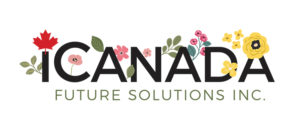Housing Options for International Students in Canada
There are many different housing options available for international students in Canada. The best option for you will depend on your personal preferences, budget, and lifestyle.
University Residence Halls
Many universities in Canada offer on-campus housing, also known as residence halls or dormitories. These are usually located within the university campus, providing easy access to classrooms and university facilities. They also offer a unique opportunity to mingle with other students and get involved in campus activities.
Private Student Residences
In addition to university dorms, there are private student residences available in many Canadian cities. These are similar to dorms but are privately owned and operated. They provide furnished rooms, utilities, and often include services such as cleaning and meals.
Shared Apartments/Houses
Renting a shared apartment or house is another popular option. This typically involves renting a room in a larger house or apartment and sharing common spaces like the kitchen and living room with other students or young professionals. This can be a more affordable option, depending on the city and location.
Homestays
Homestays involve living with a Canadian family in their home. This can be a great way to experience Canadian culture first-hand and improve English or French language skills. Many agencies can help international students find homestay opportunities.
Renting Alone
Renting a private apartment or house is also an option. This option provides more privacy and independence but can be more costly, especially in larger cities.
Navigating Housing Costs
Housing costs vary widely across Canada, with larger cities like Vancouver and Toronto generally being more expensive. It’s important to budget not just for rent but also for utilities (unless included in your rent), groceries, transportation, and personal expenses.
Leases and Contracts
When renting any accommodation, you will likely need to sign a lease or contract. It’s important to read and understand all the terms before signing. If you’re unsure about anything, seek advice from student services at your university or a local legal clinic.
Choosing the right housing option for you will depend on your personal preferences, budget, and lifestyle. Each option has its pros and cons, but with proper planning and research, you can find a housing option that suits you perfectly.
Here are some additional tips for choosing housing in Canada:
- Start your research early. The best housing options often go quickly, so it’s important to start your research early.
- Be flexible with your dates. If you’re flexible with your move-in and move-out dates, you’ll have more options available to you.
- Consider your budget. Housing costs can vary widely in Canada, so it’s important to consider your budget when making your decision.
- Talk to other students. Talk to other international students who have already been through the process of finding housing in Canada. They can give you valuable advice and recommendations.
Let’s get started and book your Free One on One Consultation with your iCanada consultants now!
References:





